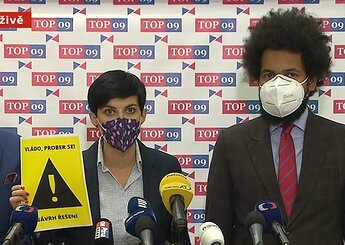POPREBEL Czech Ethnography, phase 2: Shifting to online spaces
Phase I. summary
The first phase of my ethnographic fieldwork consisted primarily of in-depth and semi-structured interviews, focused on the socioeconomic impacts of the covid crisis in the spheres of labour and care. I aimed at getting a snapshot into the nature and diversity of the lived circumstances and experiences of the pandemic and its effects. Developing from these insights, I set out to capture the participants’ changing political attitudes, beliefs and behaviours and establish a broader connection between the covid crisis and the new emerging forms of populist politics. My participants have been sampled through a snowballing method, which targeted primarily non-city dwelling and non-university educated demographics.
Preliminary and generalised findings:
The covid crisis has deeply impacted all spheres of life. Alongside the material changes at work and household levels, participants commonly expressed its negative psychological effects→ feelings of isolation, anxiety and hopelessness, digitalisation of all their social interactions, loss of their futures and opportunities (particularly among the younger generation).
- In some cases (primarily middle-class participants who could work from home), the pandemic has brought some positive changes to their lifestyles - finding more time for themselves (new hobbies and interests) and for their families.
The household dynamics 
- The extent of ease with which participants could adjust to the ‘lockdown’ measures has been largely dependent on their socioeconomic status (question of housing/space, available technology, childcare duties etc.).
- Very few female participants named the phenomenon of increased pressure/burden to perform household duties, even when it was clearly present.
Labour 
- Large disproportion between those allowed to stay at home-office and those having to attend their workplace.
- Accounts describing lack of safety measures at industrial workplaces. Cases of management instigating their employees to lie at track and trace or even worse to keep attending work, even if tested positive.
- Direct exposure to the virus – shift in mentality – you cannot be scared of the virus, if your everyday work/livelihood necessitates being in close proximity to it.
- A wider societal debate on whether a full lockdown/shutdown of big industries should have been implemented. Economy > Human lives.
Political views 
- Regardless of socioeconomic standing, age, gender, or the extent to which corona impacted their lives, almost every participant expressed a sense of frustration and disillusionment with the current government and the political representation at large.
- The government has failed to manage the ongoing crisis and repeated the same mistakes over and over, due to a pressure from the public (and the parliamentary opposition) to ease the restrictions. It acted in a blatantly populist manner, which has cost thousands and thousands of lives.

Source: https://www.facebook.com/CT24.cz/photos/10159780865079009
- Those who have been dissatisfied with the government before, see this failure to deal with the crisis as telling of their incompetence.
- Those not so overly critical of the gov., account these failures to the strong pressure of the public and the opposition (anti-Babis movement).
- None could name any other existing party, which they think could manage the covid crisis better (we are faced with an unprecedented situation).
- Majority of the politicians are corrupt, incompetent and lazy. They should be doing much more for their citizens, considering how much they get paid (from citizens’ taxes).
- Czech parliamentary politics hollowed of any morality or ethics.
- Sense of a large gap between the politicians/their manner of ‘doing politics’ and the people. Lack of representation – majority of the participants, when asked, said they did not know who to vote. There does not seem to be any political party which would represent their interests (however varied they are).
Public institutions 
- Loss of trust in state institutions.
- The pandemic has unveiled to the “middle classes” (those who, often for the first time, found themselves in need of state support because of covid), that the social welfare system is designed in such a way, to make the receipt of benefits extremely difficult and invasive.
- Stigmatization around receiving state support.
*in Czech, as well as in other CEE countries, social welfare constitutes a lower % of the GDP, in comparison to western Europe. Recipients of state welfare are also subjected to more rigorous controls and checks (source).
-
Widely circulating discussions on the extent, form and amount of state compensations during the pandemic. A notion that if the state paid the full compensation, people would abuse it.
*The discourse of nemakačenko - ‘lazy workers’ and ‘welfare abuser’ is extremely pervasive in the Czech context, and is part of the dominant neoliberal ideology, which has been strongly cultivated since the era of privatisation in the 90s.
-
Fears over growing state debt – the Czech economy cannot afford to compensate for the loss of income (re: covid). Fear over the uncertain futures – global financial crisis.
COVID conspiracies 
- Almost all participants mentioned to have been exposed to some disinformation campaigns and covid related conspiracies circulating in the digital sphere.
- A general sense of mystery surrounding the epidemic. There might be something ‘bigger’ going on behind the scenes that we (as regular people) do not know about.
- Covid as a tool to achieve a profound geopolitical transformation at a global scale.
- Bringing new opportunities for capital accumulation.
- Frequent mentions of covid as a biological weapon, artificially invented to curtail worldwide population growth.
- General mistrust and uncertainty around vaccination.
National identity 
- Czech people described as inward looking, envious and individualistic (weak sense of collective identity).
- Lacking an international perspective + intolerant to difference.
- Tendency to always somehow circumvent the rules.
- Germany repeatedly described in the manner of an unfulfilled aspiration (politically, economically, socio-culturally)
Phase II. What’s next?
In the second phase of my fieldwork, I intend to focus explicitly on online spaces where, to put it more broadly, Czech netizens express their views re: the covid crisis and its political handling. While during the first phase of my fieldwork, I approached the research questions via the problematic of covid and its socioeconomic impacts, I now intend to shift the focus on their political expressions in the online spaces. In doing so, I will use the outcomes of my initial research to better contextualise the multiple interactions/discussions taking place on the web.
Research themes:
1. COVID and state responses to it, focus on the spheres of labour and care.
- The changing views and preferences of the middle class in the Czech Republic (and beyond?).
- What is driving people to populism and right-wing organizations/parties?
- Precariatization leading to radicalization?
- Failing institutions / cardboard state.
2. Upcoming elections in the Czech Republic.
- Reshuffling in the Czech political field prior to the upcoming elections.
- Shift towards Russia’s influence (Dukovany nuclear power station, Sputnik, public service media – changes in the CT, covid disinformation campaigns).
3. The changing features of populism in Czech / Czech populism
- The character of Babis’ technocratic populism and emphasis on centrism.
- Is the covid crisis bringing new populist (right-wing) discourses to the surface?
- Emergence of new political movements and parties, their core being a direct opposition to covid government restrictions (anti-vaxx, covid deniers, conspiracy theorists).
- Women in right-wing causes and organisations.
Methodology
For the sake of a methodologically strong comparison with the Polish and German contexts, I decided to shift my research area to solely Czech online spaces. I will focus on topics which are trending re: the above outlined research themes, and follow their threads and discussions taking place on a diverse range of online spaces. I aim to engage with participants broadly defined as:
-
Wanderpopulism - people who are ‘searching’ and unsure of their affiliation and orientation (the “undecided” of the political science).
-People perhaps disillusioned and alienated from the current political scene (resonating with my findings so far).
Online spaces:
-Online news outlets discussion forums - novinky.cz, idnes.cz, aktualne.cz (most widely read online news outlets in CR).
-A2LARM, Eurozprávy, Parlamentní listy, Hospodářské noviny
-FB group discussions: CT24, Visegradsky jezdec,
-Twitter, Instagram, Clubhouse
-
Narrowly defined groups and categories
– supporter bases of existing or newly emerging ‘populist’ parties/movements
-Map out the newly emerging populist actors and groups and their influence in the digital sphere.
-Who are they, what are their political agendas and discourses, what do they campaign against, alliances/enemies, political aspirations etc.
-Good source to study the supply form of populism: the aesthetics of the newly emerging populist forces that bring forwards strong features of nativism and neo-traditionalism.
-Analysis of the visual content.
Online spaces:
-Social media as a space for explicitly political mobilisation.
-Participant observation of the communication channels (social media, youtube channels etc.) of some of the ‘populist’ actors.
-Disinformation channels which publish covid related content – aeronet.cz/aenews.cz, svobodny vysilac, forum.sebesdileni.cz, duchdoby.cz, ac24, protiproud, sputniknews, argumenty a fakta, otevri svou mysl a rizika vakcin…
Research objective
-participant observation
-choosing two or three groups to get embedded in
-entering into discussions with participants.
-Long-term plan: chatnography, semi-structured interviews, discussions on ER.
 conspiracy theories groups, anti-lockdown/mask/vaccine movements, ‘agents of change’ etc.
conspiracy theories groups, anti-lockdown/mask/vaccine movements, ‘agents of change’ etc.![]() For more elaborated list see: COMPARATIVE FIELDWORK
For more elaborated list see: COMPARATIVE FIELDWORK 


